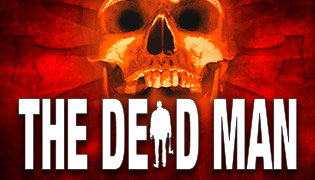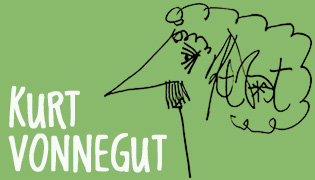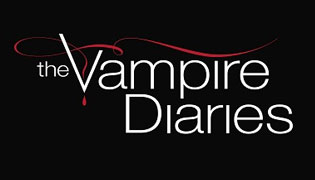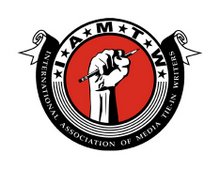 There have been lots of questions and concerns among professional tie-in writers -- the authors who write books based on TV shows, movies, games, etc -- about Amazon’s new Kindle Worlds program. So the International Association of Media Tie-in Writers approached Amazon's Philip Patrick, Director, Business Development and Publisher of Kindle Worlds, to see if he’d be willing to answer some questions from our members and, to our delight, he was. Here are some of the questions and his replies:
There have been lots of questions and concerns among professional tie-in writers -- the authors who write books based on TV shows, movies, games, etc -- about Amazon’s new Kindle Worlds program. So the International Association of Media Tie-in Writers approached Amazon's Philip Patrick, Director, Business Development and Publisher of Kindle Worlds, to see if he’d be willing to answer some questions from our members and, to our delight, he was. Here are some of the questions and his replies:Q: I have a mid-list career (and growing) as a cozy mystery writer, and as an indie publisher. Work in tie-ins has become harder to find and less lucrative over the last couple years, and I've mostly stepped back from the field. Initially I dismissed Kindle Worlds as a bad bet. But now I am rethinking that. Do you see this program as a way to expand the troubled tie-in market for authors and to create more opportunities for franchise holders?
Philip Patrick: We see Kindle Worlds as another option for all writers and readers, and a great opportunity for professional writers to explore the stories and Worlds they feel passionate about. Licensors have an opportunity to deeply engage with their enthusiastic fans, and earn new revenues from the Worlds they created. Our job is to create the best possible experience for writers, readers, and World licensors.
Q: There's lots of fanfiction out there and the vast majority is awful. What kind of curation is Kindle Worlds going to do, not so much for adherence to franchise rules but in terms of writing quality?
PP: Part of our mission at Kindle Worlds and Amazon Publishing is to act as a laboratory and develop new ways for writers to be creative, to connect with readers, and to earn money. In the case of Kindle Worlds, we don’t see ourselves as curators, because part of our job is to open up these Worlds to writers and readers who feel passionately about their characters and stories. Ultimately our customers will decide which writers and stories they enjoy through their reviews, but the quality is already coming through: Kindle Worlds stories have received great reviews – more than 840 customer reviews, in total – averaging around 4.3 stars. The prospect of selling a book and having it get reviewed by passionate fans makes a writer better, we think.
 Q: What other properties does KW expect to acquire? Can you talk about what type of properties they are interested in and what makes them appropriate for KW?
PP: It all comes down to great storytelling, compelling characters, and vibrant geographies that writers are excited to explore. Some Worlds are going to be more current than others, of course, but there are many iconic works and characters that Kindle Worlds writers are going to love.
Q: What other properties does KW expect to acquire? Can you talk about what type of properties they are interested in and what makes them appropriate for KW?
PP: It all comes down to great storytelling, compelling characters, and vibrant geographies that writers are excited to explore. Some Worlds are going to be more current than others, of course, but there are many iconic works and characters that Kindle Worlds writers are going to love.Q: What is the criteria and process for selecting worlds/franchises/properties, how are the owners compensated, etc? Can authors contact Amazon about licensing their books and short fiction for Kindle Worlds? Basically, what opportunities exist for authors on the licensing side of KW?
PP: We are always looking for new Worlds from authors and other licensors, and because royalties are split three ways – between the licensor, the writer, and the publisher – there is incentive and opportunity for all three.
Q: KW allows authors to keep their copyrights. Yet the effect of the agreement is work-for-hire. Can you explain your thinking?
PP: Kindle Worlds differs from works-for-hire in that our authors retain 35% of net revenue of their books’ sales. We like to think of our royalties as an incentive to write really good stuff, so it sells well for a long time. Authors get to contribute to a World and make an on-going profit off their original works in that World, which is really cool, a win-win for the author and the World. An author grants us an exclusive license to the story and all of the original elements the author includes in that story. We then allow the original World licensor and other Kindle Worlds authors to use those new elements. That seems fair to us and it’s why we have the rights set up as we do. If a writer doesn’t want to make that concession, we understand and we have a lot of ways they can publish their own original work on Amazon.
Q: The audio royalty seems low, as does the sublicense royalty. Can this be negotiated on an individual basis?
PP: No, we don’t negotiate individual terms. We feel the royalty rates are very competitive.
Q: With the price of the work to be set by Amazon and with the royalty rate set at 35%, what incentive is there for a writer to write stories longer than 10,000 words? If a longer story is going to get the same rate as a shorter work, it would seem to make the most sense for a writer to write more short works than one longer one (e.g., 5x 10k word stories rather than 1x 50k story). Can you address this seeming inequality of payment?
PP: The current standard author’s royalty rate for works of at least 10,000 words is 35% of net revenue, while shorter works (between 5,000 to 10,000 words) pay authors a digital royalty of 20% of net revenue. Kindle Worlds is an option and a choice for authors – we think many will quite like the choice.
 Q: KW reserves the right not to publish submitted works. Could you provide some information as to what happens during the review and approval process? What happens after a writer hits the submit button? Does Amazon review the story, does the IP holder review the story? Are there editorial changes to be made or is the story simply approved or denied without editorial changes to be made?
Q: KW reserves the right not to publish submitted works. Could you provide some information as to what happens during the review and approval process? What happens after a writer hits the submit button? Does Amazon review the story, does the IP holder review the story? Are there editorial changes to be made or is the story simply approved or denied without editorial changes to be made?PP: Every Licensor sets Content Guidelines for their Worlds. Once a writer submits his or her story, we review it to ensure that it follows those Content Guidelines for its World. The pre-publication review process typically takes a day or two. If we have questions during the review, we reach out to the author to figure out answers. But there is no storyline approval a writer has to go through. This is an open playing field with some boundaries (the Content Guidelines), but if a writer writes within those Guidelines, then we very much expect to publish the writer’s story.
Q:What are the top three mistakes writers are making when submitting stories to KW and what can writers, professional and amateur, do to make the KW process easier on themselves from submission to approval?
PP: Great question. My biggest piece of advice would be to follow the Content Guidelines and really focus on a story that will appeal to a World’s core fan base. As you all know, that takes some work to do. But it is worth it.
Q: Will Amazon promote works by established authors differently than works by "fans"? Would KW let readers know our credits so they can take that into account when deciding whether to make a purchase? If so, how do we let KW "editors" know during the submission process that we are pros with published books, also available on Amazon, to our credit?
PP: Every story will ultimately stand on its own merits, particularly the stories our customers respond to with positive reviews and recommendations. Amazon highlights all of an author’s works through their author pages, both previously published novels and Kindle Worlds titles.
Q: Say an author wants to write a Quantum Leap novel (expired show) or Person of Interest (a current Warner Brothers Television show). Can an author work with KW to obtain a license to write in that universe?
PP: We know that a lot of IAMTW members have long and deep relationships with both current and expired properties and we’re happy to receive suggestions. Our feedback email on site is checked on a regular basis and that is a great way to reach us.
Q: How does the editorial staff handle creative control specifically related to the individual property? An example: I write a Vampire Diaries novel where I kill everyone off. Readers complain that I don't have the voice right, I clearly have never watched the show, etc. Do readers have a say in whether a KW book remains in print? Will KW ask an author to do a rewrite in response to reader reviews?
PP: One creative challenge in Kindle Worlds is that incredibly passionate and knowledgeable fans are typically among the first readers. If a story misses the mark, those fans will voice their response through customer reviews. How a writer responds to customer reviews is really up to him or her. We wouldn’t put a book out of print or demand re-writes based on customer reviews alone. The Kindle Worlds platform is flexible enough, though, for a writer to rework and republish their story based on customer feedback. That’s a unique feature of digital publishing overall: a writer can modify his or her work almost in real time, as they receive critical feedback. We’d gladly accept a new version of a book if a writer wanted to make changes after customer reviews came rolling in.
Q: At the moment the requirement to have a US bank account is a barrier for non-US writers to become involved with Kindle Worlds. Are any plans to relax this or provide another route.
PP: Yes, we are working to make the platform more accessible globally.
Q: Do publishers and license holders (Universal, Paramount, etc.) see this program as a real threat to the tie-in publishing world as it exists now? Are they unlikely to allow KW fiction if an existing book line (for example, Monk, Star Trek, Leverage, Supernatural, etc.) already exists? The argument against KW could be "why would a reader buy a $7.99 Supernatural book if they can get the KW stories for significantly less?"
PP: This is a new option and a choice for those licensors. Kindle Worlds may not be attractive for everyone, and that’s fine. But the response so far has been very encouraging, and we continue to receive useful feedback from all of our partners: licensors, writers, and fans.
Q: On the author side, are the publishers pressuring franchise holders NOT to do business with KW because they are concerned fewer pro authors will work for them, with the restriction and tiny royalties/advances, when they can get a bigger royalty writing for KW?
PP: You’d have to talk to them.
Q: Is one of the things holding back KW from acquiring more name-brand franchises (Star Trek, Superman, X-Files, Twilight Zone, Dr. Who, etc.) that franchise holders are worried that allowing non-pro, cheaper Kindle World’s fiction will diminish the value, financially and creatively, of their properties?
PP: First, I’d say we are thrilled with the Kindle Worlds we’ve launched to date, and very excited about what we have coming up. This is a new business and a complex one at that, so we’ve always expected it would take some time to develop. That said, we are constantly adding new World Licensors and will be announcing new Worlds in the coming weeks and months.
Q: How likely are we to see vintage TV (WIld Wild West, Remington Steele, Mannix, Lost in Space, Knightrider, Hart to Hart, Stargate, Farscape, etc) and movie properties (Dirty Harry, Independence Day, High Noon, Bill & Ted, Breakfast Club, etc) included in Kindle Worlds? The franchises on KW now don't seem to be the ones likely to draw lots of passionate readers or writers.
PP :Those are all great suggestions; we are actively exploring many different properties, so stay tuned on that front. I’d challenge the idea, however, that the Worlds we have don’t draw passionate readers or writers. Since June, we’ve published more than 250 Kindle Worlds titles, and they’ve earned hundreds of positive reviews, with an overall review average around 4.3. We’re thrilled with the response to date.
Q: Where does Amazon hope to see the KW program a year from now?
PP: The response so far has been very encouraging. We are thrilled with writers who have been publishing with us and the readers who have been buying their stories. And we’re excited to continue to add new Worlds for writers and more stories for readers.









